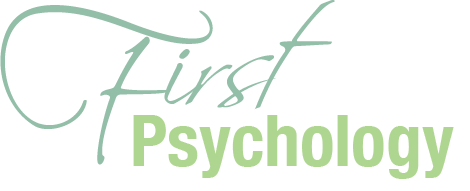
Professor Ewan Gillon is Clinical Director of First Psychology. Formed in 2009, First Psychology now offers many different psychology and counselling services, for a wide range of clients. It operates from 13 consulting venues across Scotland and northern England, with nearly 50 rooms and 150 practitioners.
How did First Psychology begin?
It evolved from my own counselling and therapy practice, which I started around 2001. The ethos behind it was very much to offer a service that was very client-centred, and able to understand the needs of people in different situations in their lives. I was very keen for it to be very transparent, to provide lots of information, and to not be too diagnostic and or expert-led.
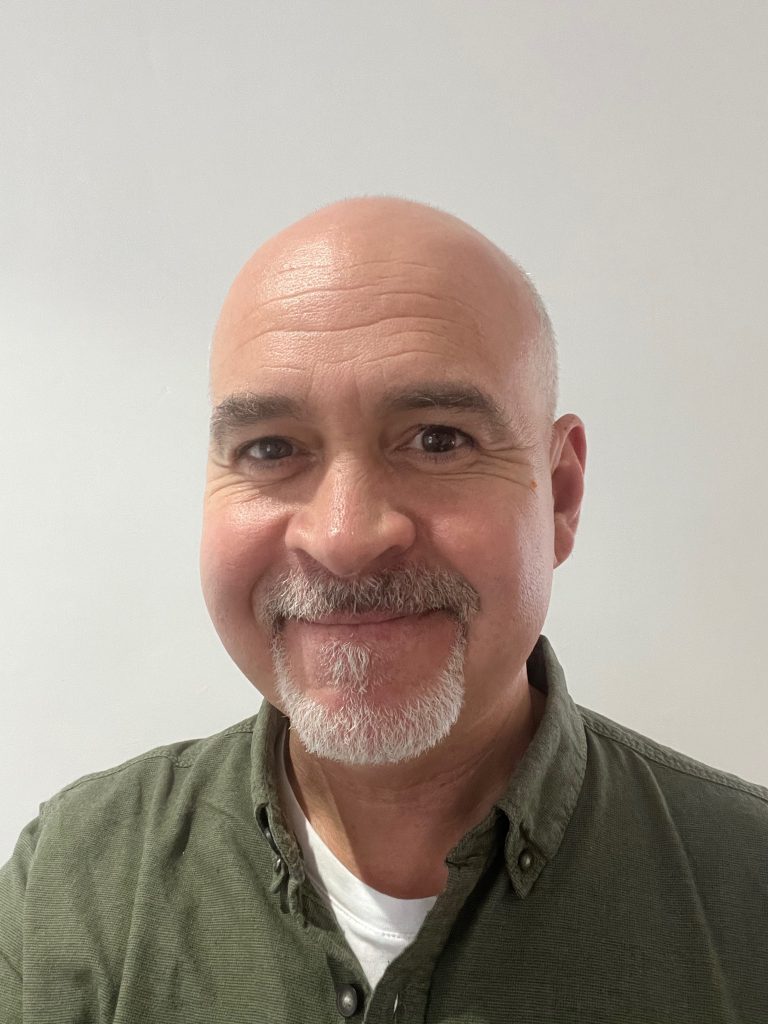
“I wanted to allow each client to find what they need, so that I could offer them different types of therapies and different approaches.”
Initially I worked a lot with men – trying to encourage men to consider therapy and to engage more with their mental health. That grew and evolved to eventually become First Psychology, with the same kind of ethos, philosophy and approach. It was initially based in Edinburgh; since then, we’ve expanded throughout Scotland, and are now moving into northern England.
We still very much focus on working with clients and trying to find the best things for clients. Our philosophy is what we call ‘pluralistic’: that means we’ve got different types of practitioners in our organisation. We’re very much a therapy organisation – people from counselling and psychotherapy backgrounds, people from cognitive behavioural therapy and other specialist types of therapy, and also some psychologists. And what we try and do is find the right clinician for every client. We’ve got a services team who help our clients to find what they need.
We’re a fairly broad group of people now: we have around 150 clinicians working across our organisation. We try to take advantage of that by having lots of training in–house. We’ve got a lot of professional and clinical leadership in–house, in areas such as children and families, couples, and trauma.
How do you work out what type of therapy is going to be right for each person?
We start by speaking to the person themselves, or to someone who knows them well. People want different things. Some people want to talk about their experiences, and just have a place to feel heard, and to be valued and validated. Others are looking for techniques and strategies to help them manage particular difficult experiences they might have. So, we talk to the person themselves, and they are the decision–maker.
Then we can say, ‘These are the people we have available who do the kind of things that you are looking for’, and we might suggest that the person meets with a particular clinician. In that initial session the clinician can figure out whether what they do and how they work is going to be helpful for the client.
“The client gets a chance to decide whether they like the person, and whether they feel that they can talk to them and they’re going to meet their needs.”
It’s very much a discussion about the next steps, rather than starting anything. You might establish what that particular clinician can offer, and agree a plan or a process of therapy.
If it doesn’t work in that first session – for example, if the clinician feels that a different approach might be better, or that the client needs something other than therapy – then we help the client find that other thing themselves. We might advise the client, ‘This is where I think you should go’, or we might refer them to someone else at First Psychology.
Is that approach – of having lots of different types of services available – quite unusual?
Yes, it is. What you tend to find is that a lot of services are either clinician–led or theory-led. Either the clinician has got a particular interest, or there’s a particular philosophy that the people who run the service believe in, and that’s basically what you get. Whereas, we think that clients themselves should be making decisions about what they need, in discussion with clinicians.
It’s not the client simply saying ‘I want that’ and getting it. If someone wants something that we think is not actually going to be helpful to that person, or it’s not something that we feel can offer, we’d have a conversation.
So certainly we’re quite unusual. I think that’s why we’ve grown over the years: we’ve innovated and changed in response to demands from people.
You said that earlier in your career you were focused on getting men into therapy. Do you think that there’s still some stigma about that, or find that a lot of people – not just men – are resistant to the idea?
Yes, I think that’s absolutely the case. And I think that there are different types of experiences people have, and different reasons why they might feel apprehensive or unsure about whether therapy is something they want to pursue. Obviously, people may have had bad experiences with authority in the past, and they might in some ways imagine that therapy involves authority.
“There may be some stigma around speaking to people about your problems: people feeling that they may be judged, or that other people might see them as not being able to cope, or something like that.”
And, to be honest, there are just natural anxieties about entering into something like therapy, which may feel very unknown and very uncertain because it’s not something you do every day. So, it’s naturally an activity that is going to be hard for people to start. It’s not an easy thing to do.
How do you try to address these sorts of obstacles?
Over the years we’ve tried different ways of being as open as we can to different types of experiences that people have had, and really thinking through what it is like for someone coming for therapy. In our service team we have an ‘every contact counts’ philosophy. So, if someone phones up but they don’t book a session, we see that as a good thing, not a bad thing. We want to help. And if someone says, ‘Look, I just want information’, that’s fine. We’re not trying to force anyone to do anything, because we want to help people begin in their own minds to break down the barriers.
Not everyone will come to therapy, not everyone is going to be helped by therapy. I mean, it’s a process that I think generally can be pretty helpful, but there may be other things that are equally helpful to someone in a particular set of circumstances. So, again, it comes back to this philosophy of being very client–centred, and wanting to help people find what they need for themselves.
“It’s about understanding that coming for therapy is difficult.”
So we provide information and support, we answer questions, we’re very open and transparent, we offer sessions at different times in the day in different locations, we offer telephone and remote sessions… all of these things making it as possible as it can be for different people to access the service in the way that works for them.
In many ways your philosophy, values and approach are all similar to those of Future Pathways.
Yes, I think so. I think we share a real emphasis on client–centeredness in our way of working.
Obviously, one difference is that First Psychology is a business. We’re independent: we function and we make our living from doing therapy, which is a good thing because it enables us to do it in the way that we really believe in, rather than being beholden to other organisations and so on. The downside, of course, is that we have to charge, and that’s something that we try our best to manage.
But, I certainly think, having worked with Future Pathways, that there is a lot of overlap in the way that we work. Ultimately, I think we’ve both got the same thing at heart, which is that it matters to us that people are helped and given the support that they themselves feel is helpful to them, rather than imposing something on them.
“For people who have had difficult experiences in their lives, having power and control – and feeling that they are valued and listened to – is of immense importance.”
And that is absolutely how we would see every single client who comes through our door.
We’d like to develop our relationship with Future Pathways, and we can see the opportunity for that. And obviously, as we get to know each other better, we’re really responsive and open to any feedback and support that we get from Future Pathways and the people they support. It’s a relationship that’s growing, and that I hope will continue to grow.
Our registration line runs through the year. You can phone us for free on 0808 164 2005. Our lines are open Monday to Friday, 10am to 4pm.
Sometimes, we close the registration line at key dates during the year, for example holidays. The Registration Line will be closed on the following dates:
- Monday 23 December 2024 to Friday 3 January 2025 inclusive (2 weeks)
The line will close at 4pm on Friday 20 December 2024 and reopen on Monday 6 January 2025.
- Friday 18 April to Friday 25 April 2025 (1 week 1 day)
The line will close at 4pm on Thursday 17 April. It will open again at 10am on Monday 28 April.
- Monday 7 July to Friday 11 July 2025 (1 week)
The line will close at 4pm on Friday 4 July. It will open again on Monday 14 July.
- Monday 13 October to Friday 17 October 2025 inclusive (1 week)
The line will close at 4pm on Friday 10 October. It will open again on Monday 20 October.
If you are finding things hard, you can contact one of the following services:
The Samaritans
The Samaritans offer a safe place for you to talk any time you like. You can talk in your own way about whatever is going on. They have a helpline, email service, letter service and a self-help app.
Helpline open 24 hours a day, 365 days a year.
Phone for free on 116123
Breathing Space
Breathing Space is a free and confidential phone service for anyone in Scotland over the age of 16 who is feeling low, depressed or anxious.
Open 6pm to 2am Monday to Thursday, and 6pm to 6am Friday to Sunday.
Phone for free on 0800 83 85 87
Shout
Shout is a free, confidential, text messaging support service for anyone who is finding it difficult to cope.
Text SHOUT to 85258
John heard about Future Pathways through a community service that his GP referred him to. John had experienced ebbs and flows in his circumstances, career, and health throughout his life. He had previously accessed other services, but he did not feel they were able to make a real difference in his life.
It took time for John to feel ready to seek support, and he had to wait many months for support to start. Although John understood why the waiting list was necessary, it was difficult to be “on hold.”
Since starting to access support from his Support Coordinator, Future Pathways has felt different to the other services John has accessed in the past.
“They were able to do what they said they would do. Future Pathways has the resources, time, and relationships with other services to actually make a tangible difference.”
For example, when John spoke with his Support Coordinator about his difficulty with sleeping, his Support Coordinator helped him explore why this was and supported him to purchase a new bed.
“It might seem small, but Future Pathways let me choose and order it. At first, I selected the cheapest option possible. But my Support Coordinator explained that we could get something better, something that would meet my needs. I feel the difference every time I go to bed.”
When John was struggling to pay energy bills, Future Pathways linked him up with a charity which helped him apply for a grant to alleviate this pressure.
“It was huge. Future Pathways have been able to help with things I never thought they could help with. A lot of other services I have worked with could only listen. Nobody was able to do something. Future Pathways really did make a tangible difference in my life.”
Future Pathways also enabled John to access ongoing support with his mental health. Now, John can speak to someone regularly about how he is coping and explore how he can take care of his mental health. Accessing mental health support has made a long–term difference to John’s life.
“Before I accessed this support, I didn’t know why I couldn’t function. They helped me figure it out for myself. And I am still figuring it out. But now, I am on that journey.”
Now, John feels he understands himself and his mental health better, and he has access to the support he needs to move forward in his life. John is more linked up with his GP and is starting to engage with the Scottish Child Abuse Inquiry. Accessing support through Future Pathways has helped John to learn more about himself, prioritise his mental health and make positive changes to his life.
“It really was lifechanging. It is night and day compared with what my life was like. Now, I have someone on my side. Future Pathways helped me turn my life around. I started caring about myself, because someone else was caring about me.”
We are excited to announce that Future Pathways will be hosting a live webinar about how we evaluate our service.
Created in collaboration with Matter of Focus, the webinar will take place on Zoom 12.30-1.30pm on Thursday 8 February 2024.
The event is free and you can register to attend here.
This webinar is all about how we have worked in partnership with Matter of Focus to learn more about our impact and tell a story about the difference we make.
In this webinar we will share more about:
- How we took a collaborative evaluation approach to developing our impact report.
- How combining our own evaluation with independent input enhanced our evaluation.
- How you can integrate self-evaluation into your approach to learning and improvement.
We have worked with Matter of Focus as a learning partner since 2018. Their approach and software help us evaluate our relational, trauma-informed approach, and consider how we make a difference within a complex and evolving context.
The webinar will be hosted by Dr Simon Bradstreet (Principal Evaluation Consultant, Matter of Focus), Flora Henderson (Alliance Manager, In Care Survivors Alliance) and Louise Hall (Impact and Evaluation Lead, Future Pathways).
Join us
Register for this webinar to find out more about how we have worked in partnership with Matter of Focus to understand our impact and tell a robust story about the difference we make. There will also be the opportunity to ask questions and a recording of the webinar will be shared with all those who register after the event.
Online, Zoom
12.30-1.30pm
Thursday 8 February 2023
Our partnership with Matter of Focus
At key stages in our journey, Matter of Focus helped us build our knowledge and understanding by acting as an independent learning partner. In 2023, Matter of Focus helped us review our evidence and learn more about people’s experience of the service through a series of discussions. This enabled us to develop our most recent impact report, Stepping Stones.
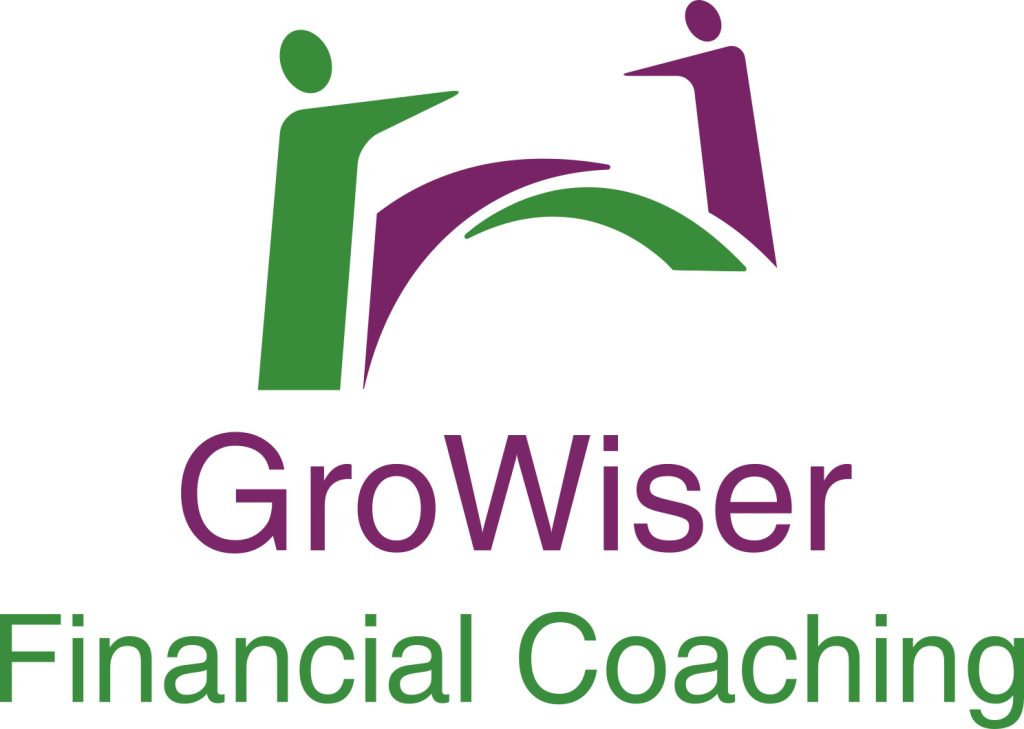
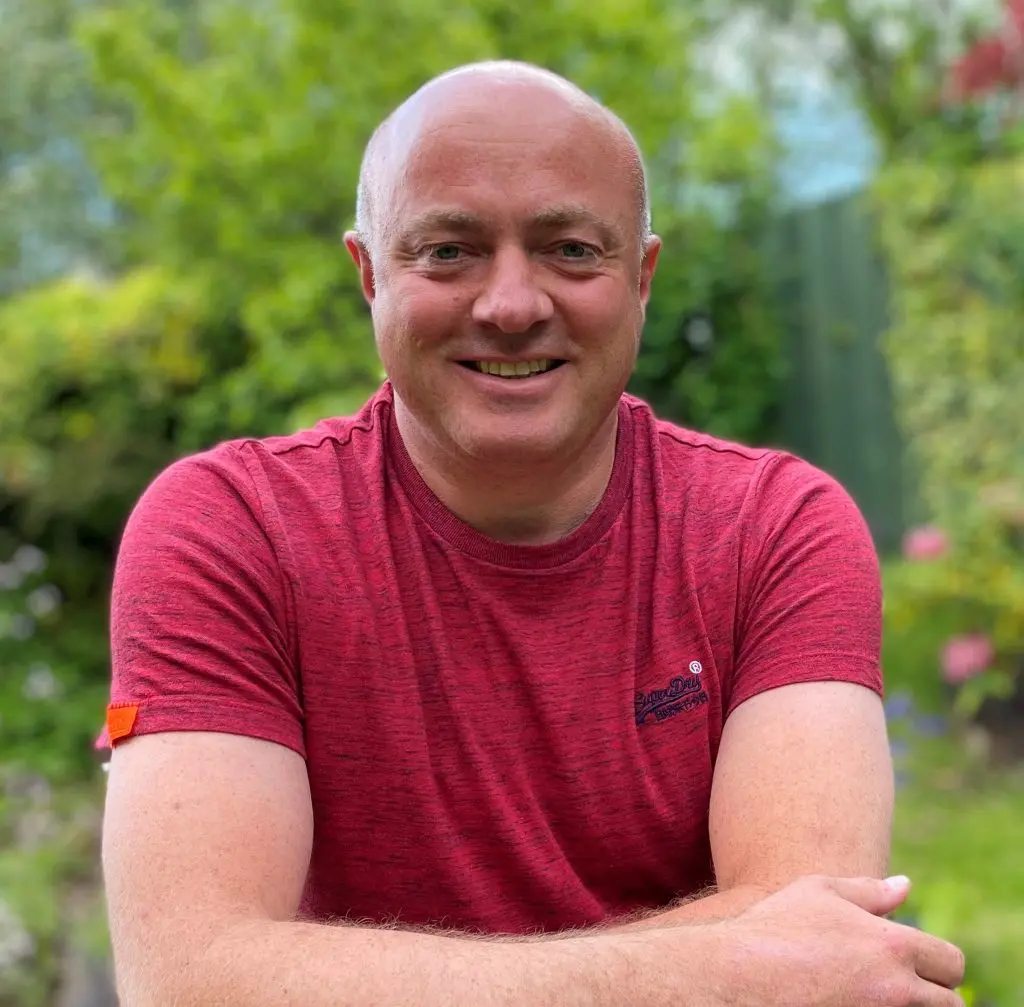
Graham Wells is a financial coach and the founder of GroWiser. He started his career in the ‘regulated advice’ part of the financial sector, but then moved away from the sale of financial products and into coaching. In that role he helps people to develop the beliefs and behaviours that will enable them to build a better financial future.
In essence, what is financial coaching?
It’s not somebody telling you what to do with your money.
It’s all about behavioural change, and recognising emotions and thought patterns that don’t serve us well. The key thing is the concept of empowerment, and working in a way that’s non–judgmental. I think that often when people seek support, they’re fearful that they will not be knowledgeable enough, or that they’ll come across as being stupid. But working with a financial coach is an absolutely non–judgmental process. It’s about empowerment of the individual, not about bamboozling people with technical jargon or telling people what they’ve done wrong and what they should do differently in the future.
How did you first get involved in financial services?
When I left school, aged 17, I had no idea what I wanted to do, so I got a job in the local bank until I decided what I wanted to do. I was still there 23 years later. During part of that time I trained as a financial advisor within the bank, including gaining the regulated Diploma in Financial Services, and I would advise customers on investments, pensions and insurance, that type of thing.
This is going back more than 20 years ago now. The financial services industry was still really quite sales–orientated. I stayed in that environment for about six years, and then realised, ‘There’s something just not suited to me here, there’s something not right about this’. So I moved into training.
I spent several years training financial advisors, and also learning about how people learn – the ‘wider’ part of learning and development – which I found really fascinating. Eventually I found myself in a supervisory role: I would accompany wealth managers when they went out to see clients. So that gave me exposure to a wide range of different types of advisor and different types of clients.
The combination of that experience as an advisor, a trainer and a supervisor really gave me a deep understanding of how limited the whole financial services sector is. What I mean by that is that less than 10% of the population have a financial advisor, and it tends to be only the wealthiest 10%. Also, it often creates a situation where clients become dependent on their advisor to tell them what to do and how to look after their money.
I learned that while it can be good to give people knowledge, the other half of the battle is application of that knowledge and how people change their behaviours and their habits.
And that’s what led me to think: ‘Wouldn’t it be nice if I could blend learning and development somehow with technical financial knowledge, to actually help people who need it the most?’ So about eight years ago I trained as a financial coach. At that time, to my knowledge, there was only one other financial coach in the whole of the UK, based down in Brighton. Since then it’s accelerated at quite some pace.
“Working with a financial coach is an absolutely non–judgmental process. It’s about empowerment of the individual.”
What are the main things that financial coaching covers?
I focus on both the day–to–day practicalities of money and also the emotions that people have around their money, and the behaviours that that leads to.
The practicalities of money might just be the basics, like setting up an emergency fund and budgeting, and working out what’s important. What things give you most satisfaction in return for the money you spend on them? This helps people to develop better financial habits. Or it could be helping people to understand their pensions, for example, or learning how to invest money for the first time.
So that’s all quite practical. The other side is behavioural. Sometimes the real work here is not even to do with money: it’s helping people to recognise how they build new habits and new mindsets. This can also touch on the emotions of money. A lot of our financial habits and behaviours stem right back to childhood. There’s one study that says most of our financial attitudes are formed by age seven, so sometimes there can be quite a lot to unpack for people there. They may have beliefs like – you’ve heard some of the famous phrases – ‘money is the root of all evil’, or ‘money doesn’t grow on trees’, or ‘money makes the world go round’. These sort of belief patterns do not always serve people in the best way.
What inspires people to look for financial coaching?
More and more people are beginning to search for this type of help. Some clients that come directly to me haven’t heard of the term ‘financial coaching’, but they’re typing similar things into Google and finding me that way. The starting point is that they’re recognising that their financial behaviours are not serving them well.
Other people that get in touch with me are working with a financial advisor but something doesn’t feel quite right about it. They want to feel more empowered and more in control, or they maybe feel that they’re paying an awful lot in fees and they’re not quite sure what the value is that they’re getting from that.
“I learned that while it can be good to give people knowledge, the other half of the battle is application of that knowledge and how people change their behaviours and their habits.”
What sorts of things do you usually help those people with?
The key point there really is recognising that the coaching element is all about empowering individuals, and it’s very much forward looking. (I guess that fits well with the name ‘Future Pathways,’ doesn’t it?) The way in which I work is not about telling people what to do or advising them. So it lends itself well to the ethos of other partners that work with Future Pathways. We have a very supportive, empowering way of working but – importantly – it’s not therapy. It’s not looking backwards and trying to fix problems from the past. It’s very much about looking to the future, and I think that way of working resonated for certain people Future Pathways are working with.
A large part of it can actually just be day–to–day money management. To be honest, that’s probably something that most of the population would benefit from. It’s about understanding day–to–day budgeting. Most of the work happens outside of the sessions. I give people homework tasks, like listing their various sources of income and also listing where the money goes. That can be a real eye opener. Some people find that they actually had no idea how much they had coming in or going out.
And that exercise alone can be so illuminating: it’s enough to raise awareness and change behaviours, to make people feel motivated to improve things.
An awful lot of people that have built up pension benefits over the years are unaware of this – they just don’t know that it’s there. So that can be quite a source of reassurance just to know that something is there. For others it can be thinking about more effective ways to repay debt, and for others it can be just exploring a little bit more about where their thoughts and feelings come from around money, particularly if they are in the process for the Redress Scheme. The thought of receiving a large lump sum of money that they’re not used to can be really upsetting. So reassurance around how they might approach that decision making process.
There must be real emotional benefits for people after they’ve got more in control of their finances?
Absolutely, and I know this from personal experience. Even though I worked in the bank, nobody there taught me how to look after my money, so I was perpetually in debt right through my twenties. And the feeling of relief after finding a way out of that was quite remarkable. So imagine people in that position through their twenties, thirties and forties, and even into their fifties… the sense of relief and finding a way out of that is tremendous.
Graham’s 5-step approach for financial wellness
Savour your spending.
Be intentional with how you spend your time and money. Spend in line with your values and don’t forget your future self.
Protect the people around you.
Prepare for the unexpected and build peace of mind for you and your loved ones.
Eliminate your debt.
Find the most effective strategy for using and repaying debt. Know the difference between ‘good’ and ‘bad’ debt.
Nurture your wealth.
Realise that to be ‘wealthy’ is different to being ‘rich’ and includes looking after your whole life, not just your money.
Design your future.
Be intentional and create a plan for how you’d like to spend your time as you get older. Don’t leave it to others to define your life path.
Check out our other Meet the Partner interviews:
Centred
Working across the Highlands, Centred support people with their mental health, in their own homes and in the Recovery Centre in Inverness. Read more here.
Dan Ross
Discover how Dan Ross helps people to reframe their thinking and find new perspectives on challenges. Read more here.
Sarah Smith at Lightbulb
We chat to Sarah Smith, founder of lightbulb.coach, to discover more about how she helps people to build their confidence and self esteem. Read more here.
Cellfeld
Cellfield help people people to improve their reading skills and are one of our support providers. Read more here.
Book Whisperers
Find out more about The Book Whisperers, a community of people that helps writers of all kinds to self-publish their work. Read more here.
Our latest Quarterly Report is now available to view. It covers our work from July to September 2023. It shows what we’ve learnt, and includes key stats and feedback from those who access Future Pathways.
What happened in Q2
75 people registered with Future Pathways.
33 people started working with a Support Coordinator.
107 people accessed support from 43 Delivery Partners.
Who we worked with
The average age of people who registered with us was 47.
77% of people who register with us live in the Central Belt of Scotland.
Many people who register with us have a disability or a health condition that impacts their daily life and ability to access services
How people felt
Most of the feedback from people registered with us was positive.
Some people expressed appreciation for Future Pathways’ support and told us they felt heard.
People also shared that it is difficult when they cannot access swift and responsive support.
Delivery Partners shared feedback that they feel valued and supported by Future Pathways.
What people gained
People we support said that the most impactful support was accessing mental health support and being able to improve their homes.
Our Delivery Partners shared feedback that they learned about the needs and challenges of people we support by working with Future Pathways.
What changed for people
Anne shares what changes for her after accessing Future Pathways’ support.
“The cinema membership encouraged me to leave the flat and venture into town. When the cinema was quiet, I felt safe, like I didn’t have to scan the place.”
Some Delivery Partners fed back that they had changed how they work because of their work with Future Pathways.
What difference we made
Josie shares the impact of Future Pathways’ support.
“That old life has gone now. I love my life now. I am in a happier place. I’m more me.”
Our full report features further infographics, feedback and a breakdown of our financial spend. Read the full report.
Marie-Anne, who we work with, wrote this article for us about her recovery
journey, and how we are helping her to get a University Degree in Criminology.
My name is Marie-Anne. I first became involved with Future Pathways to help find my care records and piece my life together. I don’t think I was fully prepared for the rollercoaster that would be presented with once I received my records and realised that I was definitely in fact a survivor of multiple childhood traumas.
I became homeless for quite a number of years and didn’t address the trauma until I reached my late 20s. By then, I had enduring mental health difficulties.
That being said, I don’t regret knowing what had happened to me in early childhood and teenage
years. It did take more than a decade though to take back my life and own my own journey.
I started with an amazing mental health charity that helped me to slowly regain my self-esteem.
I then found an organisation called Venture Scotland, where I took part in a personal
self-development outdoor adventure programme. That took nearly two years.
Eventually, I became involved with Future Pathways. I may be biased, but they became my
absolute heroes. I don’t think I would have had the chance to reach my full potential through
learning, education, and self-discovery, if it wasn’t for the all the support and encouragement from my coordinator Suzie and from Future Pathways as a whole.
My dream was to study Criminology and Criminal Justice, as these have been my absolute passion for as long as I can remember.
With experiencing abuse and trauma in my past, I also wanted to reclaim my life and regain some form of empowerment.
So, I started a BA (Hons) Degree in Criminology with The Open University in Scotland. So far, I
have completed four years and graduated with a Diploma of Higher Education in Criminology. I
still have some way to go though: I have two more years left before I complete my honours
degree.
This journey I have been on has been emotional, enlightening, difficult, brave and motivational.
I really don’t know where I would be in terms of my self-worth and growth without the massive
contribution from Future Pathways.
Ashley created these images especially for our December newsletter.
She said: “I’ve loved art ever since I was a child, but after leaving school I never really picked up a pencil until lockdown. Then I got into painting at home, with the help and support of Future Pathways. I recently started an online art course. I am learning so much in this journey, namely patience. I am the type who likes it done as quick as possible, but I know a realistic picture isn’t going to take less than 20 or 30 hours. I made these three art pieces over 5 days (no mean feat).”



Pat shares his photographs with us as part of our Winter newsletter.
Pat says: “Two pics at Fort William, Scotland, and one of my dog Chong with Hector the turtle.”



In this feature, we take a look at our work from 2023, covering January to November. The round-up below shows key information about the work we do, shining a light on who we work with, how they feel and the difference made to people’s lives across Scotland, the wider UK and beyond.
What did we do?
Who did we work with?
We worked with people from all over the world, but most people who registered with us live in central Scotland.
More younger people have registered with us over the last year, and the average age of people registered with us has decreased.
Through our new ‘About Me’ form we learned that people we support are more likely to experience inequalities like homelessness, addiction, criminal conviction, and disabilities and health conditions that affect their everyday life.
We worked with 69 Delivery Partners offering a wide range of different types of support.
How did people feel when they engaged with us?
We learned more about people’s experiences with us through our new feedback forms.
Everyone who gave us feedback on our website felt their experience with Future Pathways was “mostly positive”.
Everyone who gave us feedback after reviewing or ending their support felt understood and cared about by Future Pathways, and that they could trust the service.
Here are words people we support used to describe our service:
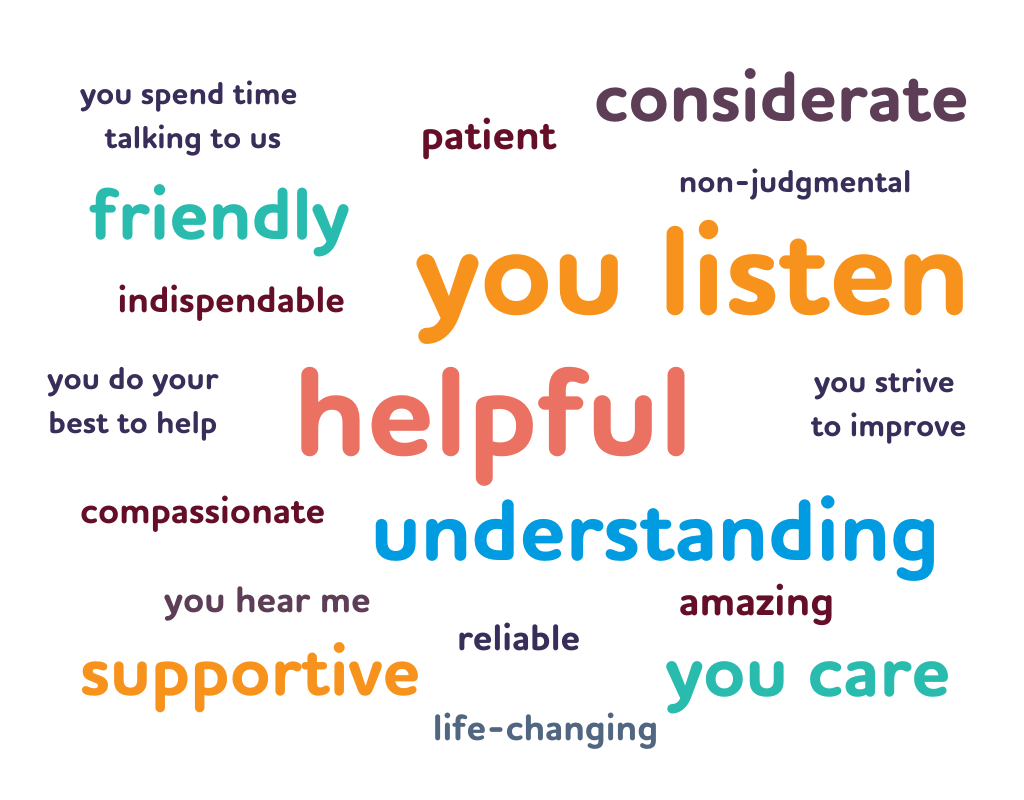
Delivery Partners told us they feel valued by Future Pathways. The most common word Delivery Partners used to describe Future Pathways was “collaborative”. Most Delivery Partners who answered our questionnaire told us that working with Future Pathways was different to working with other services. Delivery Partners told us that our transparent feedback, open-ness to dialogue, and focus on learning and improvement made Future Pathways different.
What did people learn and gain?
Most people who gave us feedback after reviewing or ending their support told us they knew what changes they want to make in their life.
Most people told us they knew more about their strengths and what they can do.
Most people also felt they had opportunities to influence how Future Pathways develops.
Most Delivery Partners who responded to our questionnaire shared they had learned more about the people we support through our work together.
What did people do differently?
Everyone who gave us feedback after reviewing or ending their support felt able to access support that is right for them. Most people also agreed that they have taken steps towards their goals.
Most Delivery Partners told us that they had made changes to how they work with people because of what they have learned through working with Future Pathways.
What difference did we make?
Most people who gave us feedback after reviewing or ending their support felt more independent. Most people strongly agreed that they now feel more hopeful about the future. Some people told us that their life was better overall.

